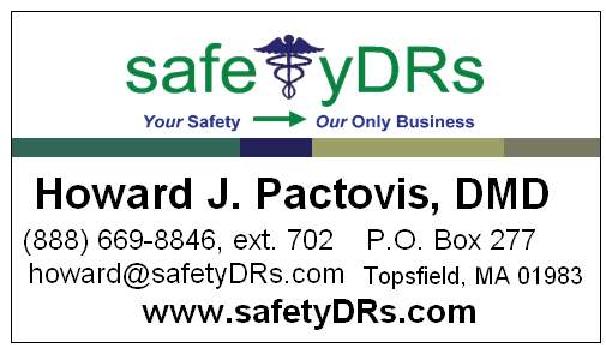 December 2 – 8 is National Handwashing Awareness Week. Keeping hands clean is one of the most important ways to prevent the spread of infection and illness.Wash Your Hands: The Right Way:When washing hands with soap and water:
December 2 – 8 is National Handwashing Awareness Week. Keeping hands clean is one of the most important ways to prevent the spread of infection and illness.Wash Your Hands: The Right Way:When washing hands with soap and water:
• Wet your hands with clean running water and apply soap. Use warm water if it is available.
• Rub hands together to make a lather and scrub all surfaces.
• Continue rubbing hands for 15-20 seconds. Need a timer? Imagine singing "Happy Birthday" twice through to a friend.
• Rinse hands well under running water.
• Dry your hands using a paper towel or air dryer. If possible, use your paper towel to turn off the faucet.
If soap and clean water are not available, use an alcohol-based hand rub to clean your hands. Alcohol-based hand rubs significantly reduce the number of germs on skin and are fast acting.When using an alcohol-based hand sanitizer:
• Apply product to the palm of one hand.
• Rub hands together.
• Rub the product over all surfaces of hands and fingers until hands are dry.
 World AIDS Day --- December 1, 2007http://www.cdc.gov/mmwr/preview/mmwrhtml/mm5647a1.htm?s_cid=mm5647a1_e%0ADecember 1 marks the 20th observance of World AIDS Day, an annual worldwide event established to increase awareness and education regarding human immunodeficiency virus (HIV) infection and acquired immunodeficiency syndrome (AIDS). In 2007, an estimated 33.2 million persons worldwide are living with HIV; the number of deaths from AIDSin 2007 is expected to total 2.1 million (1). In the United States, an estimated 1 million persons were living with HIV in 2003 (2); of these, approximately 25% were unaware of their infection and thus were at high risk for infecting others.HIV testing remains a crucial component of HIV prevention strategies. Persons who know they are infected with HIV can seek health care and protect their partners from becoming infected. In 2006, CDC issued newguidelines recommending routine HIV testing of adults, adolescents,and pregnant women in health-care settings in the United States (3). In addition, CDC recently provided funding to increase testing among populations disproportionately affected by HIV/AIDS. Additional information regarding World AIDS Day and HIV prevention measures isavailable at http://www.cdc.gov/features/worldaidsday and http://www.cdc.gov/hiv.
World AIDS Day --- December 1, 2007http://www.cdc.gov/mmwr/preview/mmwrhtml/mm5647a1.htm?s_cid=mm5647a1_e%0ADecember 1 marks the 20th observance of World AIDS Day, an annual worldwide event established to increase awareness and education regarding human immunodeficiency virus (HIV) infection and acquired immunodeficiency syndrome (AIDS). In 2007, an estimated 33.2 million persons worldwide are living with HIV; the number of deaths from AIDSin 2007 is expected to total 2.1 million (1). In the United States, an estimated 1 million persons were living with HIV in 2003 (2); of these, approximately 25% were unaware of their infection and thus were at high risk for infecting others.HIV testing remains a crucial component of HIV prevention strategies. Persons who know they are infected with HIV can seek health care and protect their partners from becoming infected. In 2006, CDC issued newguidelines recommending routine HIV testing of adults, adolescents,and pregnant women in health-care settings in the United States (3). In addition, CDC recently provided funding to increase testing among populations disproportionately affected by HIV/AIDS. Additional information regarding World AIDS Day and HIV prevention measures isavailable at http://www.cdc.gov/features/worldaidsday and http://www.cdc.gov/hiv.
 December 2 – 8 is National Handwashing Awareness Week. Keeping hands clean is one of the most important ways to prevent the spread of infection and illness.
December 2 – 8 is National Handwashing Awareness Week. Keeping hands clean is one of the most important ways to prevent the spread of infection and illness.
